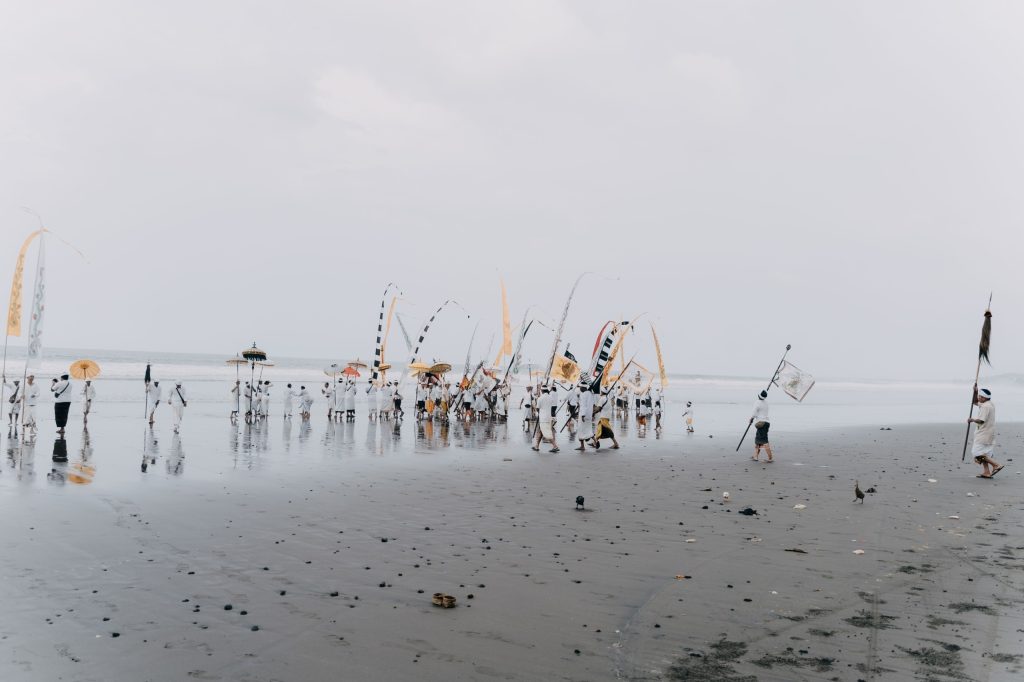What is Melasti?
Melasti, also known as Mekiyis or Melis, is a significant pre-Nyepi ritual observed by Hindu communities in Bali, Indonesia. It is fundamentally a purification ceremony dedicated to cleansing sacred objects and the environment of any impurities (mala) accumulated throughout the past year. The ritual aims to spiritually and physically purify the pratima (sacred effigies of deities), palinggih (shrines), and other holy paraphernalia belonging to temples across the island. This cleansing is believed to restore their spiritual power and prepare them for the solemn observance of Nyepi, the Balinese Day of Silence.
When is Melasti?
Melasti typically takes place several days before Nyepi, usually ranging from three to four days prior. The exact timing can vary slightly depending on the specific desa adat (traditional village) and their local calendar calculations. However, it consistently falls within the lead-up to the Saka New Year, which marks the beginning of a new cycle and necessitates a state of purity and renewal.

Where does Melasti take place and how is it done?
The central location for Melasti ceremonies is invariably a natural water source considered sacred. This can be the ocean, a lake, or a holy spring (beji). Each temple community, often in large processions, will transport their sacred objects to these designated water sources. The journey itself is a significant part of the ritual, often involving traditional music, colorful parasols, and the devout participation of community members dressed in traditional attire.
Upon arrival at the water source, the pratima and other sacred items are ritually bathed and cleansed with the holy water. Prayers and offerings are made to the deities and spirits, seeking their blessings for purification and well-being. The community members also participate in self-purification rituals, symbolically cleansing themselves and their surroundings. The atmosphere is typically vibrant and deeply spiritual, reflecting the community’s collective effort to prepare for the introspective nature of Nyepi. Following the cleansing, the sacred objects are respectfully returned to their respective temples, ready to usher in the new year in a state of spiritual purity.
